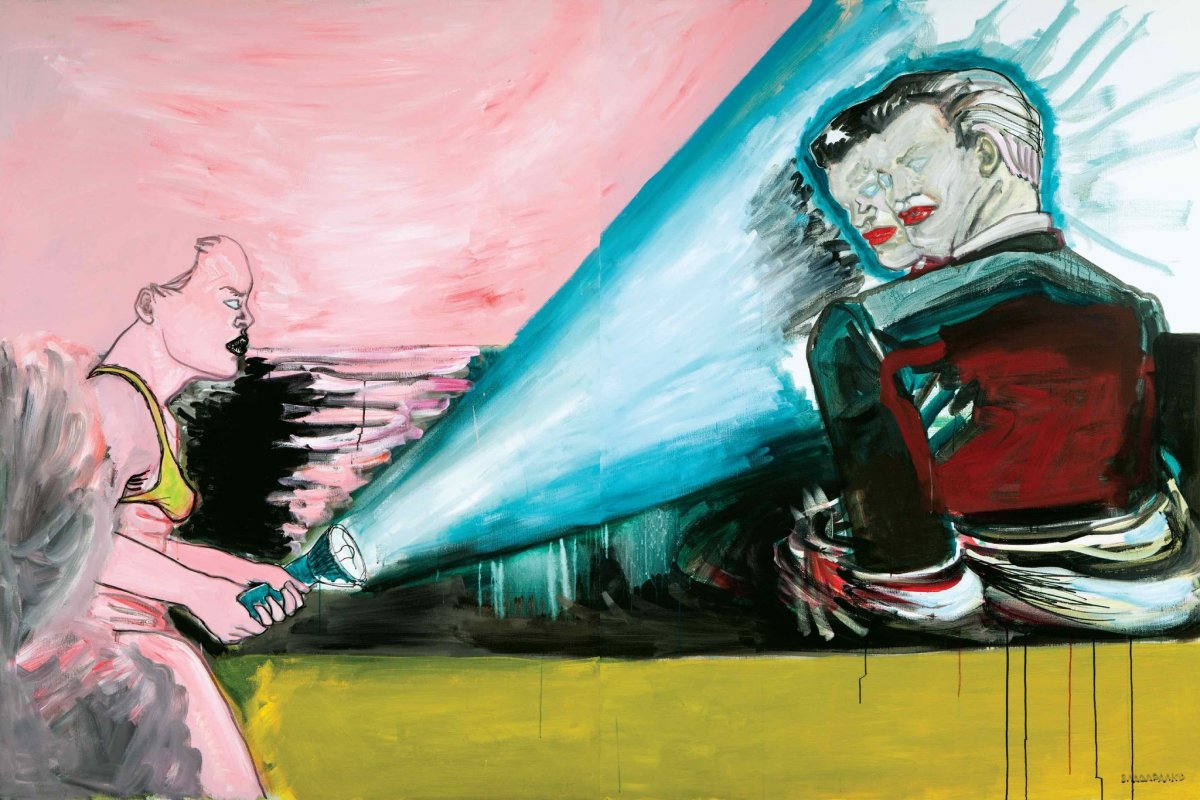
Vlada Ralko, Demarcation line, 2018
Next Thursday, March 24, at 6pm EET, we invite you to a reading workshop, which is organised in collaboration with art historian and curator Svitlana Biedarieva. The workshop will address the issues of colonisation, identity and borderlands in context of Ukrainian past and present.
Introductory speech on problematics of colonisation in context of Ukraine by Svitlana Biedarieva:
The workshop will take place on Zoom.
Link to the meeting:
https://us02web.zoom.us/j/81846743433?pwd=UXp5eFRxNzdxOXljZDdFLzdmbmhXdz09
Meeting ID: 818 4674 3433
Passcode: 882955
Texts to be discussed:
• Oleksiy Radynski, “The Case Against the Russian Federation.” E-flux Journal, March 2022.
• Daria Badior, “Why We Need a Post-Colonial Lens to Look at Ukraine and Russia.” Hyperallergic, March 9, 2022.
• Yaroslav Hrytsak, “The Postcolonial Is Not Enough.” Slavic Review, Vol. 74, No. 4 (Winter 2015), pp. 732–737.
To receive the text, please email to: ieva.ast@gmail.com.
“By absorbing the colony politically and culturally, the metropole subjects itself to a creeping takeover from within by the very alien forces it incorporated. By colonizing Ukraine, the Russian metropole had unwittingly swallowed a political culture based on horizontal forms of democracy—even if they seem brutal, like the Cossacks’ councils, the anarchist armies of Nestor Makhno, or the Maidan uprisings. And this alien presence will disintegrate the metropole from within. In a way, the Putinist fear of a “Russian Maidan” uprising in Moscow is totally justified—but not because, as Russian propaganda suggests, it will be organized by NATO-trained Ukrainian terrorists. The fear is justified because, if Russians are a little bit Ukrainian, they might also be able to topple an authoritarian government. Like Ukrainians, Russians might also have an election without predetermined results. It is this “historical unity” that today’s autocratic Russia is trying by all means to exorcize from within itself by turning Russia into a police state and preempting the popular uprising. But this effort is now turning into a self-fulfilling prophecy reminiscent of the fate of Laius, the father of Oedipus,” writes Kyiv-based filmmaker and writer Oleksiy Radynski.
“One has to be rather cautious when applying the term colony to the Ukrainian territories under the Russian empire or Soviet Union. [..] The Ukrainian case represents a wide variety of colonial experiences that are hard to group together under the umbrella of postcolonial theory. In my understanding, one of the most productive approaches is to apply the concept of internal colonization, or rather “modernization with internal colonization.” [..] Modern Ukraine, as has often been said, was born in the baptismal fire of wars and revolutions. This metaphor reveals a certain pattern that puts violence at the center of modernization. Therefore, the history of modern Ukraine provides us with a good opportunity to revise what modernity was. Certainly, colonization involved violence and domination, regardless of whether it was physical or symbolic. Still, as much as they are aspects of modernity, we cannot reduce modernization to violence and domination only. In the same vein, there are “global moments” in modern Ukrainian history that cannot be reduced to relations between core, periphery, and colony.” – Yaroslav Hrytsak, “The Postcolonial Is Not Enough” (2015).
Svitlana Biedarieva is an art historian, artist, and curator with an interest in Eastern European and Latin American art. Her edited books include “Contemporary Ukrainian and Baltic Art: Political and Social Perspectives, 1991–2021” (ibidem Press 2021), “At the Front Line. Ukrainian Art, 2013–2019 (Mexico City: Editorial 17, 2020, co-edited with Hanna Deikun). Biedarieva’s papers have been published by, among other outlets, Space and Culture (SAGE), Art Margins Online (MIT Press), and Revue Critique d’Art (University of Rennes 2). She obtained her PhD in History of Art from the Courtauld Institute of Art, University of London, in 2020.
The workshop is part of the project “Reflecting Post-Socialism through Postcolonialism in the Baltics”, which analyses the imprints of post-socialism and post-colonialism in the Baltic region. The programme is curated by Ieva Astahovska and Linda Kaljundi.
The event is supported by the Nep4Dissent Research Network, an EU COST Action Association.